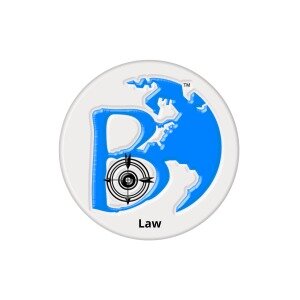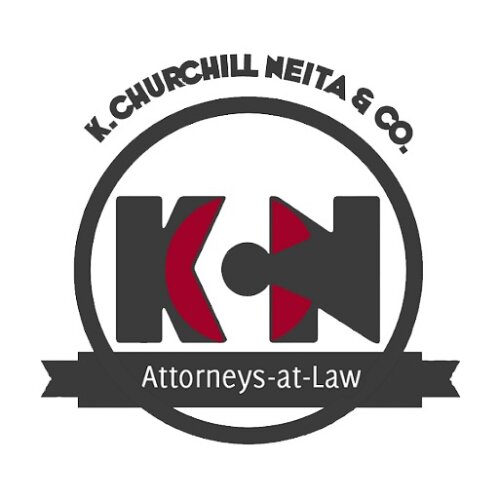Best Water Law Lawyers in Jamaica
Share your needs with us, get contacted by law firms.
Free. Takes 2 min.
Or refine your search by selecting a city:
List of the best lawyers in Jamaica
About Water Law in Jamaica
Water Law in Jamaica refers to the set of legal rules and regulations that govern the ownership, use, allocation, and management of water resources across the island. Jamaica, being an island nation with a finite supply of fresh water, considers water management a critical issue both for public health and environmental sustainability. Water law encompasses aspects such as water rights, water use permits, pollution control, distribution systems, and the protection of water resources from overuse or contamination. The legal framework aims to balance the interests of the general public, private individuals, commercial entities, and the environment.
Why You May Need a Lawyer
There are several common situations where you may require a lawyer with expertise in Water Law in Jamaica:
- Disputes over water rights or access to water sources, especially between landowners.
- Issues related to permits for extracting, using, or diverting water for agricultural, commercial, or domestic purposes.
- Legal compliance concerns for businesses involved in manufacturing or agriculture that may affect water sources.
- Matters involving pollution or alleged contamination of water bodies affecting communities or private holdings.
- Challenges regarding water rates, supply interruptions, or infrastructure managed by public bodies or utilities.
- Cases involving water resource development projects, such as dam construction, irrigation schemes, or borehole drilling.
- Appeals against decisions made by government agencies regarding water use or environmental impact.
Local Laws Overview
Jamaica’s Water Law framework is established primarily through the Water Resources Act, the Watershed Protection Act, and associated regulations, with oversight from entities such as the Water Resources Authority (WRA) and the National Water Commission (NWC). Key aspects include:
- Water Rights and Allocation: All surface and underground water resources are legally regulated. Individuals and businesses must secure permits from the WRA to abstract and use water.
- Water Use Permits: Application and granting of permits are subject to an assessment of need, intended use, environmental impact, and resource sustainability.
- Pollution Control: There are strict regulations against the pollution of rivers, streams, and aquifers. Penalties can be applied for illegal discharges or contamination affecting public health or the environment.
- Watershed Protection: The Watershed Protection Act designates certain areas for special management in order to preserve the quality and sustainability of water resources.
- Public Supply and Infrastructure: The NWC manages public water supply, and any issues with service or tariffs are subject to regulations and possible appeal.
- Groundwater and Well Drilling: Special licenses and assessments are required before any well or borehole can be developed.
- Community and Environmental Rights: Communities affected by water projects or pollution have certain legal remedies and opportunities for consultation.
Frequently Asked Questions
What government body regulates water use in Jamaica?
The Water Resources Authority (WRA) is the main body responsible for regulating water use, allocating permits, and monitoring water resources in Jamaica.
Do I need a permit to use water from a river or well on my property?
Yes, in most cases, you need to obtain a permit from the WRA to legally extract water from a river, stream, or underground source, even if it is on your own land.
How can I apply for a water use permit in Jamaica?
You must complete and submit an application to the Water Resources Authority, which will assess the proposed use, impact, volume, and sustainability before a decision is made.
What should I do if my water supply is interrupted or contaminated?
If the supply is managed by the National Water Commission, contact them directly to report the issue. For legal recourse or if contamination affects health, consider consulting a Water Law attorney.
Are there penalties for polluting rivers or water bodies in Jamaica?
Yes. Polluting water bodies is a legal offence under Jamaican laws. Offenders can face fines, cleanup orders, and, in some cases, imprisonment.
Can a farmer divert water for irrigation without a permit?
No. Diverting water for any commercial use, including agriculture, requires a permit from the WRA to ensure sustainability and minimize impact on other users.
Are there special regulations for drilling wells or boreholes?
Yes. Drilling a well or borehole requires a special license from the WRA, and the site and purpose must be assessed before permission is granted.
What are my rights if a neighboring property reduces my access to water?
Water rights can be complex. In general, you may have legal remedies if your existing lawful access is disrupted. Consult a lawyer to review your specific circumstances.
How are water rates and tariffs set for domestic use?
Water rates and tariffs are established by the National Water Commission and approved by the Office of Utilities Regulation. Rates can be challenged through formal complaints or appeals.
How can communities participate in decisions about local water resources?
Communities have rights to be consulted during environmental impact assessments and public consultations for projects affecting local water resources. Legal representation can strengthen your case if you wish to challenge a decision.
Additional Resources
Here are some additional resources for legal matters related to Water Law in Jamaica:
- Water Resources Authority (WRA): Regulates, monitors, and allocates water resources.
- National Water Commission (NWC): Manages public water supply and infrastructure.
- Office of Utilities Regulation (OUR): Supervises utility providers, including water supply tariffs.
- Ministry of Economic Growth and Job Creation (Water Unit): Oversees water policy and legislation.
- Jamaica Environment Trust (JET): Provides information and advocacy on water protection.
- University Law Clinics: May offer free or low-cost legal advice for public interest matters, including water law.
Next Steps
If you need legal assistance regarding Water Law in Jamaica, start by collecting all relevant documents, such as permits, correspondence, and official notices. Identify the specific issue or dispute and make a record of all related information. Contact a lawyer who specializes in Water Law or environmental law for a consultation. Legal professionals can help clarify your rights, guide you through permit applications or appeals, and represent you in disputes or court proceedings. If you are unsure whom to contact, begin with the Water Resources Authority or seek a referral from a local legal aid service or the Jamaican Bar Association.
Remember, early legal advice can help prevent costly mistakes and ensure your interests and the health of Jamaica’s water resources are protected.
Lawzana helps you find the best lawyers and law firms in Jamaica through a curated and pre-screened list of qualified legal professionals. Our platform offers rankings and detailed profiles of attorneys and law firms, allowing you to compare based on practice areas, including Water Law, experience, and client feedback.
Each profile includes a description of the firm's areas of practice, client reviews, team members and partners, year of establishment, spoken languages, office locations, contact information, social media presence, and any published articles or resources. Most firms on our platform speak English and are experienced in both local and international legal matters.
Get a quote from top-rated law firms in Jamaica — quickly, securely, and without unnecessary hassle.
Disclaimer:
The information provided on this page is for general informational purposes only and does not constitute legal advice. While we strive to ensure the accuracy and relevance of the content, legal information may change over time, and interpretations of the law can vary. You should always consult with a qualified legal professional for advice specific to your situation.
We disclaim all liability for actions taken or not taken based on the content of this page. If you believe any information is incorrect or outdated, please contact us, and we will review and update it where appropriate.
Browse water law law firms by city in Jamaica
Refine your search by selecting a city.










